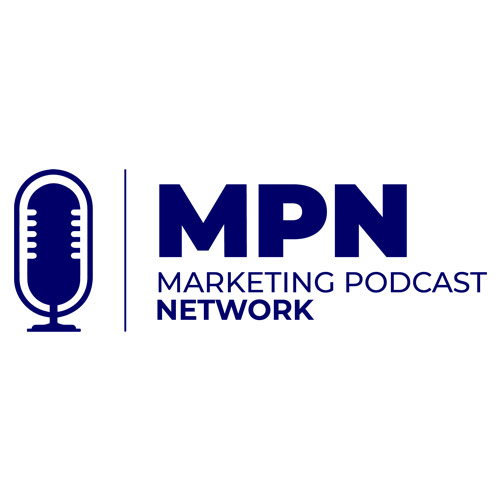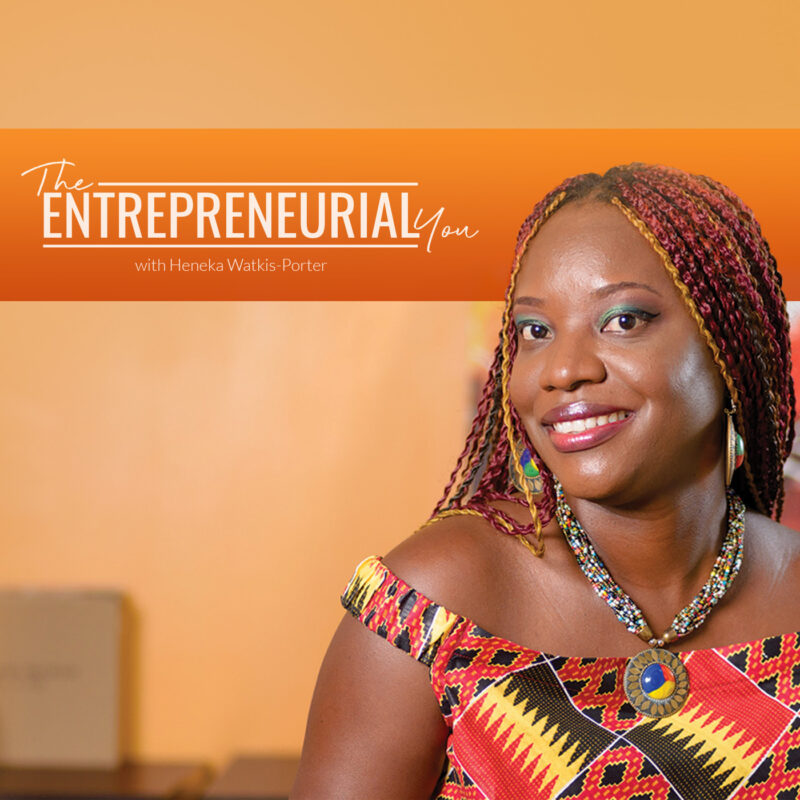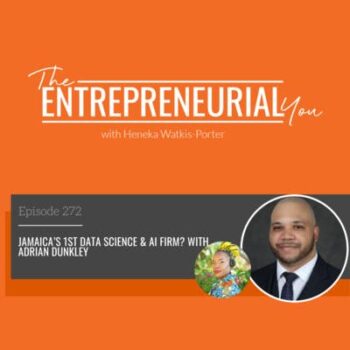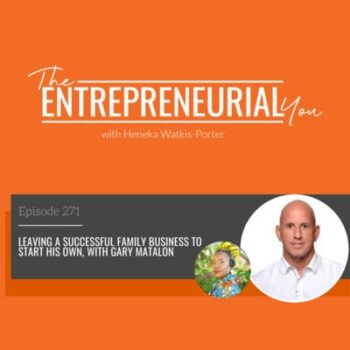From a Sheet and Towel Packer to CEO
It is time for another episode. I am Heneka Watkis-Porter, the host and creator of The Entrepreneurial You podcast if you are new here. If you missed the show last week, you would have missed the brand story of StarApple, Jamaica’s 1st Data Science & AI firm. Adrian Dunkley shared the journey of its genesis and his successes, including the Recent investment from the RJRGLEANER Group. StarApple is on its way to an Initial Public Offering, IPO, and we are here for it. I invite you to check out that episode after you have listened to this one.
This week, you will hear from someone who has built a legacy from his 1st job packing sheets and towels for two years. He worked hard, believed in his ability, and is now a Businessman, Entrepreneur. It promises to be another gem of an episode. Before I tell you who that is, I have to thank those who continue to support The Entrepreneurial You.henekawatkisporter.com, The National Peoples Co-operative Bank of Jamaica Limited, Committed to the growth and development of our members; Profit Jumpstarter, and The Jamaica Stock Exchange, whose podcast, The Jamaica Stock Exchange & You, is hosted and produced by me. Do give it a listen as well.
Opening business Tip courtesy of the National PC Bank of Jamaica:
Invest – Investing is important for every business. Investing in your business may include: investing in yourself (gaining the knowledge and skills to run your business); investing in your products and services, tools, and marketing to maintain and grow your business and investing in stocks or other securities as a way to generate extra revenue to grow your business financially.
My guest on episode 273 of The Entrepreneurial You is Hugh Graham, C.E.O of Paramount Trading, a company he started in 1991. Paramount has been committed to delivering the best in the raw chemicals industry. Today, they are a leading manufacturer and distributor of chemical raw materials to Jamaica’s market leaders— the food & beverage industry, construction, hospitality, the bauxite and mining industries among others.
PODCAST REVIEW: Fabulous Show: This is a great show that gets straight to the point and has an eclectic array of guests that deliver the goods. Listen and subscribe to this podcast to get more out of life. Dominic Brightmom
If you write a review, send me an email at henekawatkisporter@gmail.com to let me know so I can shout you out right here on the show!
Today’s Money Tip, brought to you by Profit Jumpstarter: Invest For The Long Term:
Investing is for the long term. Buy good, solid investments that will pay off over the long run and be sure to ignore short-term fluctuations. Patience is key when investing, don’t think about short-term or quick gain.
Thank you for tuning in to this episode with Hugh Graham. My most standout moment from today’s episode is when Hugh did that interview; the interviewee asked why he wanted to work for the company instead of starting his own business. He went away to think about it. The support he received from his friends at the time was phenomenal. This experience shows the importance of surrounding yourself with like-minded people.
What’s your standout moment? Send us your feedback at henekawatkisporter@gmail.com or on social media @henekawatkisporter. Remember to follow this podcast on your favourite podcast app or connect with me for all things Podcasting at henekawatkisporter.com
According to the Scriptures: “And my God will meet all your needs according to his glorious riches in Christ Jesus.” Philippians 4:19










